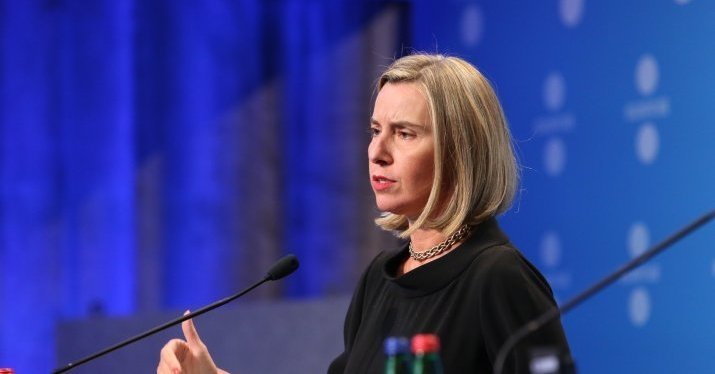On 13th November, the Defence Ministers of 23 member states reached an agreement to create a Permanent Structured Cooperation (PESCO, also referred to by its French acronym CSP) on a European level, thus laying the (modest) foundations of a future European army. These legally binding commitments relating to almost 20 sectors should be confirmed at a European Council in December.
The cooperation should particularly focus on the arms industry as well as on the strengthening of joint operations overseas. The member states also committed themselves to regularly increasing their defence budget towards the all-important threshold of 2% of GDP. Even the structure of this budget will also have to come together: 20% of expenditure must be allocated to investment and 2% to research. European cooperation will enable considerable economies of scale to be made and the vast gap to be closed that separates us from the American army. In fact, European countries spend twice as much as the United Sates in the defence sector but in comparison they reach only 15% effectiveness.
Progress is extremely slow when it comes to European defence
This decision by the European Defence Ministers is unquestionably a good thing, not for the ambition of the project or the resources allocated to it, but for progress itself. In fact, security and defence have been second fiddle in European cooperation for more than 60 years. The failure of the European Defence Community (EDC) in 1954 was a traumatizing experience and held up the political integration of the EEC for several decades. Thus, the European countries’ realisation of their shortcomings in defence and above all their willingness to rectify it constitutes in itself a step in the right direction.
Nevertheless, the overall pace of defence integration is very slow. Before last Monday you had to go back to 2004 for any signs of the creation of EU task forces (which have never been used) and to the Treaty of Nice in 2000 for the creation of the European Security and Defence Policy (ESDP). Since then, the situation in the EU’s neighbouring regions has greatly deteriorated (with the wars in Georgia and in Ukraine, the threats of Russian irredentism, the refugee crisis in the aftermath of the development of the Islamic ’State’) and yet despite all of this, the member states still do not feel the need to create a real European army.
PESCO should complement the actions of NATO
You need only look to the West to see again why the EU wants to make progress in joint defence. The UK’s decision to leave the EU along with the election of Donald Trump in the United States - a president who does not hide his hostility towards America’s critical a role in the protection of European countries - have changed the playing field. Thus, these two events have served as a little electric shock, provoking the European governments to reach an agreement on the idea of a cooperation that is supported by defence.
The departure of the UK, who was for decades hostile to such an idea, has also helped end the deadlock. Thus, out of the 27 countries that are ‘sure’ about staying in the EU, only Denmark, Ireland, Malta and Portugal have not yet decided to join the initiative. Other countries like Poland have agreed to participate but categorically reject the idea of PESCO being a replacement for NATO (the North Atlantic Treaty Organisation).
If this strengthened cooperation should merely complement the alliance, the question of European military dependence on the United States arises. With time the EU should be able to defend its own interests by itself and thus develop an autonomous military capacity on a continental level in order to be genuinely effective.
The privileged domain of defence is at the heart of the member states’ sovereignty
But this issue of replacing NATO is definitely not the largest obstacle. In fact, the rule of unanimity between the 23 states will apply for any concrete projects to be initiated. Yet it is simply impossible to move forward with integration when one country - as small as it may be - has the power to oppose the 22 others and thus block the entire process. Furthermore, defence is intimately linked to foreign policy, which itself is subject to the rule of unanimity. The European states currently employ foreign policies that are too divergent (particularly when it comes to Vladimir Putin’s Russia) to unanimously adopt a joint defence strategy.
Some observers also point towards the fact that there are too many states involved in PESCO. Before the Defence Ministers’ meeting there were two conflicting visions: the French vision, supported by the Minister for the Armed Forces, Florence Parly, involved a limited but more ambitious cooperation than the vision of her German counterpart, Ursula von der Leyen, who wanted it to be as inclusive as possible. This latter version was eventually selected but one can ask whether, to begin with, a more integrated cooperation open to ten or so members would have been more effective with the expectation of opening it up to states who want it later on (a bit like the Euro zone).
One final snag is that there is no concrete proposal to create a sort of ’Airbus of defence’. The European states will always have the right to compete with each other and to support their national military champions in the procurement of contracts. However, in such a strategic area, a European company is needed for the further integration of the EU’s different armies. Establishing the beginnings of a common European defence entails far more than some declarations of intent by ministers. Despite the results of the meeting on Monday, the prospect of a European army still seems a good way off.




Follow the comments: |
|
